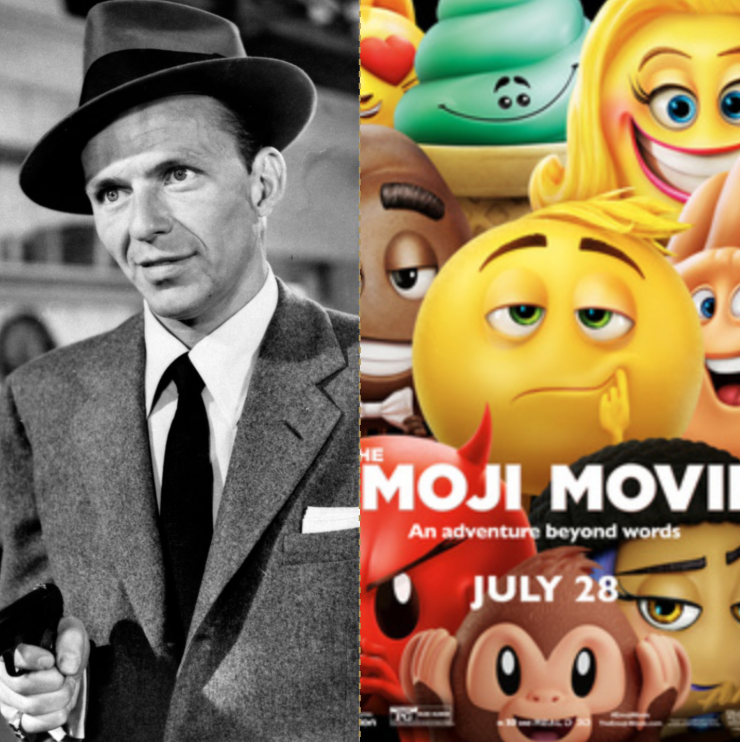How Frank Sinatra Changed Hollywood History
June 9, 2021
When one compares the casts of blockbusters from the 2020s versus the mid-1900s, it becomes increasingly obvious that capitalism has slowly slithered into the world of cinema, and a director’s priority may shift from telling a story to making money.
The Emoji Movie, for example, has a stellar cast including James Cordon, Sir Patrick Stewart, Maya Rudolph, Christina Aguilera, Sophia Vergara, Anna Farris, and Rachel Ray. It subsequently boasts a whopping 7% on Rotten Tomatoes, 12% on Metacritic, and 3.3/10 on IMDb.
Though the fact that this movie merely exists is a disgrace to many people, film critics or not, there is a reason I mentioned the cast of this movie: marketability.
As major faces of the public appeared in more and more movies toward the end of the 20th century, there was an influx of tickets sold at theatres, and as TVs became a more popular household item, there was an increase in tapes sold.
I believe much of the mentality to include famous celebrities in mundane movies started with Frank Sinatra and his film career.
There is the argument, “Maybe he just fit roles that directors wanted him to play.” No. Sinatra was a terrible actor, and his awards were derived from the committees which decide awards–long known for being biased.
That being said, I must digress: being a major fan of “Old Blue Eyes” himself, it pains me to reveal the truth to those reading along. But as film culture continues to grow and more and more people find passions within the industry, it is important to learn the backbone of Hollywood’s success.
The singer began to find musical success in the early 40s, and it wasn’t until a decade later that he became a household name after appearing in From Here to Eternity (1953.) Sinatra earned an Academy Award and Golden Globe nomination for his supporting role.
In The Manchurian Candidate, (1962) Sinatra plays a soldier suffering from mind control via the Soviet Union. He considered this the peak of his film career.
Unfortunately, Sinatra fell flat for this performance. With little facial expression, vocal expression, or bodily expression present, Sinatra seems like a perfect example of a singer-turned-actor with no true learnings to back up his filmography.
In 1988, Oliver & Company used much of its video advertisements as a cast list. The movie features Billy Joel, Huey Lewis, and Bette Midler. While bringing in a serious profit of ~$120 million, the prime example of marketability came with the 1992 release of Aladdin.
Robin Williams was cast as The Genie and begged producers not to use his name as a tactic to sell. Disney originally agreed, but soon went over his head to market his character on toys, food, and more. Infuriated by this turn of events, Williams vowed never to work with Disney again, and considered their decisions a “violation of [his] trust.”
While many may believe Williams was the catalyst for capitalist Hollywood, I remain convinced that by employing a famous singer with no previous experience in the acting industry, Frank Sinatra accidentally sparked an 80+ year money-grabbing cinematic revolution that will most likely continue until the end of time.
